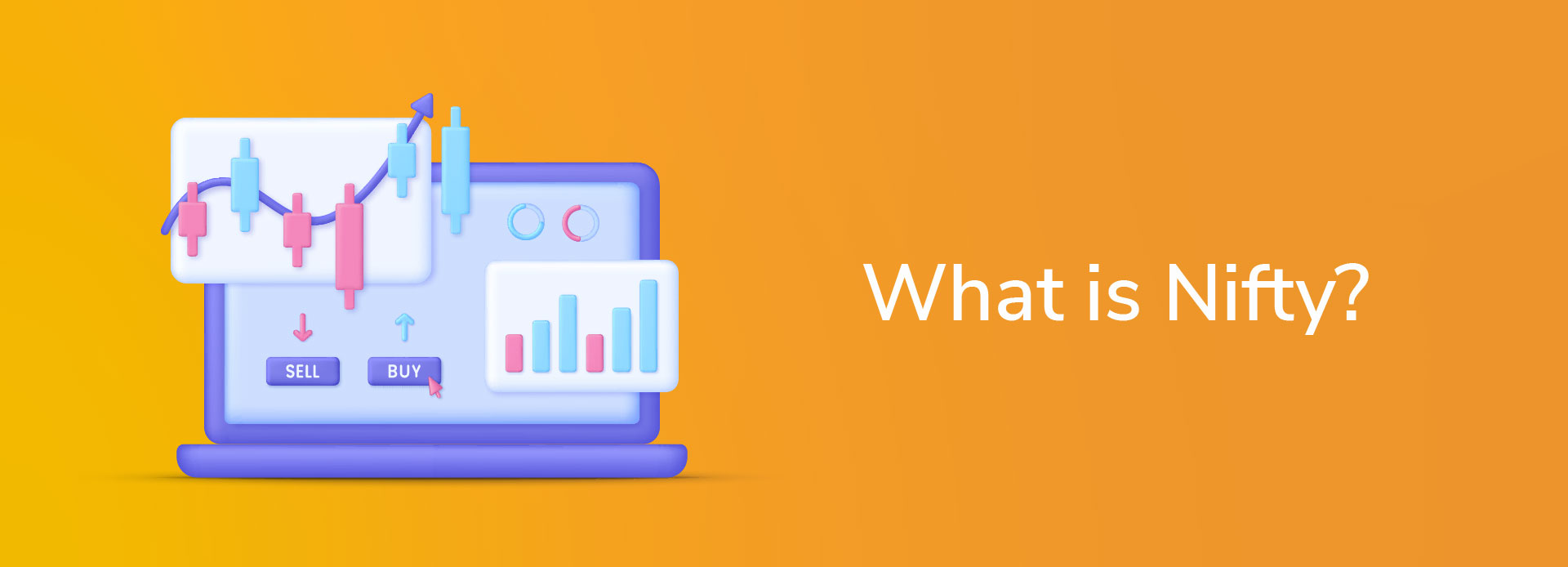
What Is Nifty?
20 May 2024 | By INDIE
In today’s rapidly evolving financial landscape, market indices play a significant role as benchmarks by giving investors a snapshot of market trends and performances. NIFTY (launched by the National Stock Exchange) and SENSEX (Launched by the Bombay Stock Exchange) are the two prominent stock market indices in India.
This article answers the question, “what is Nifty?”
Explaining Nifty
Nifty, the short form for National Stock Exchange Fifty, is a market index that was launched by the National Stock Exchange. It serves as a benchmark index for various financial products and the Indian equity market, as it helps to gauge the overall health of the Indian economy. Nifty is owned as well as managed by NIL, NSE Indices Limited and this was erstwhile known as IISL, i.e. India Index Services & Products Limited. There are over 350 indices managed by NSE Indices Limited under the brand name ‘Nifty’. This includes Nifty 50, Nifty Next 50, Nifty 100, Nifty Bank, Nifty 500, Nifty Healthcare, Nifty IT, and more.
What is Nifty 50?
Nifty 50 is the index that comprises of top 50 large and liquid stocks traded on the National Stock Exchange. The Nifty 50 was launched by NSE on the 22nd of April, 1996, which has evolved over the last 27 years and has embraced global best practices. Here are the top 12 companies that have been part of Nifty 50 since its inception.
Sl.No |
Company name with stock symbol |
Industry |
1. |
Reliance Industries Limited (RELIANCE) |
Oil & Gas |
2. |
HDFC Bank Ltd. (HDFCBANK) |
Banking and Financial Services |
3. |
Housing Development Finance Corporation Ltd. (HDFC.NS) |
Housing |
4. |
ICICI Bank Ltd. (ICICIBANK) |
Banking and Financial Services |
5. |
Hindustan Unilever Ltd. (HINDUNILVR) |
FMCG |
6. |
ITC Ltd. (ITC) |
FMCG |
7. |
State Bank of India (SBIN) |
Banking and Financial Services |
8. |
Bajaj Auto Ltd. (BAJAJ-AUTO) |
Automobile |
9. |
Tata Motors Ltd. (TATAMOTORS) |
Automobile |
10. |
Tata Steel Ltd. (TATASTEEL) |
Metal and Mining |
11. |
Hindalco Industries Ltd. (HINDALCO) |
Metal and Mining |
12. |
Larsen & Turbo Ltd. (L&T) |
Construction |
So, if you want to know what is Nifty 50, just understand that it comprises the top 50 diverse stocks from 13 different sectors constituting about 59% of the free float market capitalisation of the stocks listed on NSE as of 29th September 2023. Online stock brokers help you trade in these top 50 stocks with ease.
Also read: How to start trading in stock market?
Eligibility to get listed on Nifty Index
To get included in the NIFTY index, companies need to meet the stringent eligibility criteria set by the National Stock Exchange. Factors like liquidity, market capitalisation, company track record, financial performance, sector representation, regulatory compliance, and other listing requirements are checked. The companies can be added/removed based on these factors on a time-to-time basis.
The Nifty 50 index is reconstituted semi-annually after considering the stock performance over this period. The index is constructed on the free-float market capitalisation method. You can easily invest in Nifty stocks through online stock brokers.
Also read: Navigating the stock market
Significant events of Nifty
Year |
Event |
1996 |
Launch of Nifty index by the National Stock Exchange |
2000 |
Launch of Nifty 50 index futures |
2001 |
Launch of Nifty 50 index options |
2004 |
Launch of Nifty Bank index derivatives |
2014 |
Commenced trading on Nifty 50 on the Osaka Exchange |
2018 |
Launch of weekly option on Nifty 50 |
2019 |
Launch of Nifty BHARAT Bond Index series |
2020 |
Market crash due to the impact of Covid-19 pandemic |
2023 |
Nifty reaches an all-time high crossing the 20,000 mark |
Conclusion
To sum up, as Nifty is one of the two prominent stock market indices in India, serves as a benchmark for gauging the market performance. The diverse composition of stocks from various sectors in Nifty gives investors a deep insight into the country's economic landscape, helps manage risks and makes an informed decision.
Disclaimer: The information provided in this article is generic and for informational purposes only. It is not a substitute for specific advice in your circumstances. Hence, you are advised to consult your financial advisor before making any financial decision. IndusInd Bank Limited (IBL) does not influence the views of the author in any way. IBL and the author shall not be responsible for any direct/indirect loss or liability incurred by the reader for making any financial decisions based on the contents and information.





